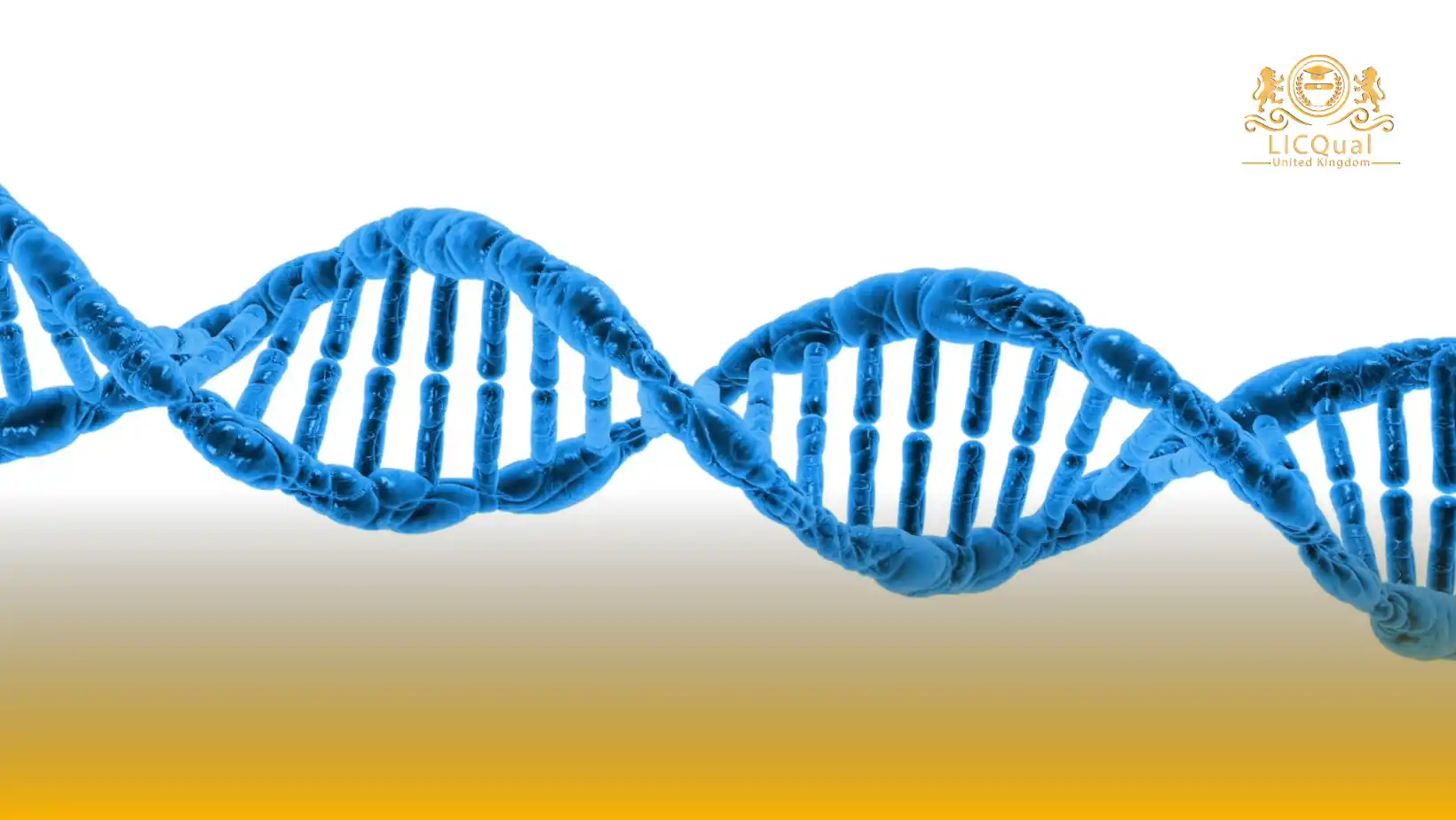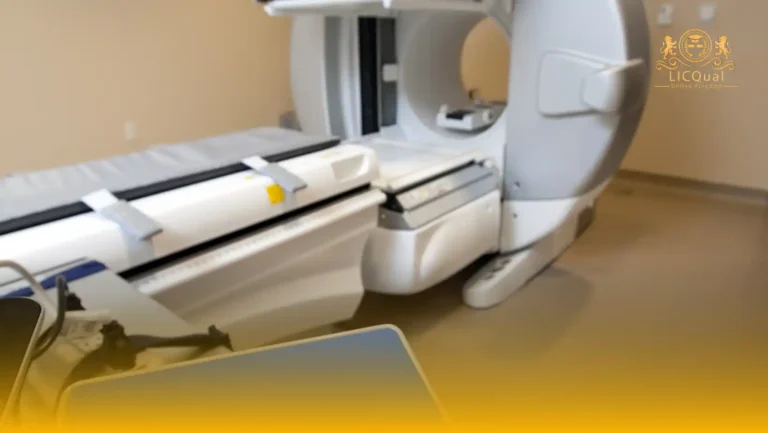The LICQual Level 3 Diploma in Nutritional Sciences (Dip Nutritional Sciences) is a comprehensive qualification designed for learners seeking to deepen their understanding of human nutrition, dietary science, and health management. This diploma provides an in-depth exploration of the physiological, biochemical, and molecular principles that underpin nutrition, enabling learners to analyse dietary requirements, evaluate nutritional status, and apply evidence-based strategies to support health and wellbeing.
This qualification is aimed at professionals who wish to enhance their career prospects, expand their knowledge, and strengthen their Continuing Professional Development (CPD). Learners will gain the skills needed to assess nutritional intake, interpret scientific research, and develop practical interventions that promote optimal health outcomes. It is particularly suitable for health practitioners, nutrition advisors, wellness professionals, dietitians, and anyone seeking to progress in the fields of nutrition, health sciences, or dietary consultancy.
Centres delivering this qualification are required to uphold the highest standards of training and learning. They must ensure that learners are supported by competent and qualified staff with relevant expertise, and that they have access to up-to-date learning materials, practical resources, and facilities that facilitate effective study and assessment. This ensures learners achieve both theoretical knowledge and practical competence, preparing them for professional success in nutritional sciences.
With its emphasis on scientific understanding, applied practice, and professional development, the Level 3 Diploma in Nutritional Sciences is an ideal choice for learners committed to advancing their careers while making a meaningful impact on individual and community health.
Course Overview
Qualification Title
LICQual Level 3 Diploma in Nutritional Sciences (Dip Nutritional Sciences)
Total Units
6
Total Credits
60
GLH
240
Qualification #
LICQ2201057
Qualification Specification
To enroll in the LICQual Level 3 Diploma in Nutritional Sciences (Dip Nutritional Sciences), applicants must meet the following criteria:
|
Qualification# |
Unit Title |
Credits |
GLH |
|---|---|---|---|
|
LICQ2201057-1 |
Foundations of Nutritional Science |
10 |
40 |
|
LICQ2201057-2 |
Human Physiology and Biochemistry in Nutrition |
10 |
40 |
|
LICQ2201057-3 |
Nutritional Assessment and Dietary Analysis |
10 |
40 |
|
LICQ2201057-4 |
Nutrition and Health Across the Lifespan |
10 |
40 |
|
LICQ2201057-5 |
Nutrition, Lifestyle, and Disease Prevention |
10 |
40 |
|
LICQ2201057-6 |
Professional Practice and Continuing Development in Nutrition |
10 |
40 |
By the end of this course, learners will be able to:
Unit 1: Foundations of Nutritional Science
By the end of this unit, the learner will be able to:
- Explain the structure, function, and dietary roles of macronutrients and micronutrients
- Describe digestion, absorption, and nutrient transport in the human body
- Analyse the impact of nutrition on growth, development, and overall health
- Apply basic nutritional principles to evaluate balanced diets
Unit 2: Human Physiology and Biochemistry in Nutrition
By the end of this unit, the learner will be able to:
- Describe key physiological systems involved in nutrition and metabolism
- Explain biochemical pathways of energy production and nutrient utilisation
- Assess the role of hormones and enzymes in metabolic regulation
- Analyse how physiological and biochemical processes influence dietary requirements
Unit 3: Nutritional Assessment and Dietary Analysis
By the end of this unit, the learner will be able to:
- Conduct dietary assessments using food diaries, recalls, and other tools
- Interpret anthropometric, biochemical, and clinical data to evaluate nutritional status
- Analyse dietary intake to identify deficiencies, excesses, or imbalances
- Apply assessment results to inform evidence-based nutritional recommendations
Unit 4: Nutrition and Health Across the Lifespan
By the end of this unit, the learner will be able to:
- Explain nutritional requirements for different life stages, including infancy, adolescence, adulthood, and older age
- Assess the impact of nutrition on growth, development, and ageing
- Evaluate dietary strategies to support health at each stage of life
- Recommend appropriate nutritional interventions for diverse population groups
Unit 5: Nutrition, Lifestyle, and Disease Prevention
By the end of this unit, the learner will be able to:
- Explain the relationship between diet, lifestyle, and chronic diseases such as obesity, diabetes, and cardiovascular conditions
- Analyse dietary and lifestyle risk factors contributing to non-communicable diseases
- Assess evidence-based nutritional strategies for disease prevention
- Recommend interventions to promote healthier eating habits and improve public health outcomes
Unit 6: Professional Practice and Continuing Development in Nutrition
By the end of this unit, the learner will be able to:
- Demonstrate understanding of ethical and professional responsibilities in nutrition
- Apply reflective practice to identify personal strengths and areas for professional growth
- Develop a personal Continuing Professional Development (CPD) plan aligned with career goals
- Communicate effectively with clients, colleagues, and stakeholders in a professional and ethical manner
This course is designed for individuals who are passionate about nutrition, health, and wellbeing and want to gain a recognised qualification with real-world value. The LICQual Level 3 Diploma in Nutritional Sciences is suitable for beginners as well as those already working in health-related roles who wish to strengthen their scientific understanding of nutrition. It offers flexible learning, practical knowledge, and a clear pathway for career progression or further study in nutritional sciences.
Aspiring Nutrition and Health Professionals
- Individuals planning to start a career in nutrition, health, or wellness
- Learners seeking a Level 3 Diploma in Nutritional Sciences as a foundation qualification
- Those interested in understanding nutritional science principles in depth
- People aiming to progress to higher-level nutrition or health-related qualifications
- Career changers entering the nutrition and wellbeing sector
- Students seeking an accredited nutrition diploma with international recognition
Fitness Trainers and Sports Professionals
- Personal trainers looking to enhance their nutrition knowledge
- Fitness instructors aiming to support clients with healthy dietary guidance
- Sports professionals interested in nutrition science for performance support
- Gym professionals seeking a recognised Level 3 nutrition qualification
- Wellness coaches expanding their professional skill set
- Trainers wanting evidence-based nutritional sciences knowledge
Health and Wellness Coaches
- Wellness coaches aiming to provide informed nutrition advice
- Lifestyle coaches supporting healthy behaviour and dietary choices
- Practitioners seeking a nutrition science diploma for credibility
- Coaches working with weight management and wellbeing programmes
- Individuals offering holistic health and wellness services
- Professionals seeking an internationally recognised nutrition diploma
Individuals New to Nutritional Sciences
- Beginners with no prior background in nutrition
- Learners seeking a nutrition science diploma for beginners
- Individuals passionate about healthy eating and lifestyle improvement
- People wanting to understand how nutrition impacts overall health
- Self-learners looking for structured and accredited nutrition education
- Those exploring nutrition as a potential long-term career path
Healthcare and Support Staff
- Healthcare assistants wanting foundational nutrition knowledge
- Care workers supporting dietary and nutritional needs
- Health support staff seeking a Level 3 nutrition course
- Professionals working in community health or wellbeing services
- Individuals aiming to enhance patient care through nutrition awareness
- Staff preparing for further healthcare or nutrition-related study
Career Changers and Adult Learners
- Professionals transitioning into the health and nutrition sector
- Adult learners seeking flexible online nutrition education
- Individuals aiming to upskill with a recognised nutrition diploma
- Learners balancing work, family, and study commitments
- Those seeking a career-focused Level 3 nutrition qualification
- Individuals pursuing long-term career growth in wellness and health
Students Preparing for Further Study
- Learners planning to progress to advanced nutrition qualifications
- Students preparing for higher education in health sciences
- Individuals building academic confidence in nutritional sciences
- Those seeking a strong foundation in nutrition science principles
- Learners aiming for international study pathways
- Students needing a recognised Level 3 nutrition diploma for progression
Centres delivering the LICQual Level 3 Diploma in Nutritional Sciences must meet the following standards to ensure high-quality training, assessment, and learner success:
- Qualified and Competent Staff
Trainers, assessors, and internal quality assurers must be appropriately qualified, experienced, and competent in nutritional sciences, health, and professional training delivery. - Access to Learning Resources
Centres must provide learners with up-to-date textbooks, research journals, digital platforms, and practical resources to support effective teaching, learning, and independent study. - Robust Assessment and Quality Assurance Systems
Centres should have clear procedures for assessment, internal moderation, and quality assurance to maintain fairness, consistency, and compliance with awarding body standards. - Suitable Facilities and Learning Environment
Centres must offer a safe, supportive, and well-equipped environment for classroom-based, blended, or online delivery, ensuring learner engagement and high-quality outcomes. - Learner Support Services
Centres must provide guidance, academic support, and access to professional development resources to enable learners to achieve their qualification goals. - Commitment to CPD
Teaching and support staff should actively participate in Continuing Professional Development (CPD) to maintain expertise and deliver high-quality training experiences. - Technology and Digital Access
For online or blended learning, centres must ensure learners have reliable access to e-learning platforms, digital resources, and technical support.
By meeting these requirements, centres can deliver the Level 3 Diploma in Nutritional Sciences to the highest standards, ensuring learners gain both theoretical knowledge and practical competence.
Assessment and Verification
All units within this qualification are subject to internal assessment by the approved centre and external verification by LICQual. The qualification follows a criterion-referenced assessment approach, ensuring that learners meet all specified learning outcomes.
To achieve a ‘Pass’ in any unit, learners must provide valid, sufficient, and authentic evidence demonstrating their attainment of all learning outcomes and compliance with the prescribed assessment criteria. The Assessor is responsible for evaluating the evidence and determining whether the learner has successfully met the required standards.
Assessors must maintain a clear and comprehensive audit trail, documenting the basis for their assessment decisions to ensure transparency, consistency, and compliance with quality assurance requirements.







